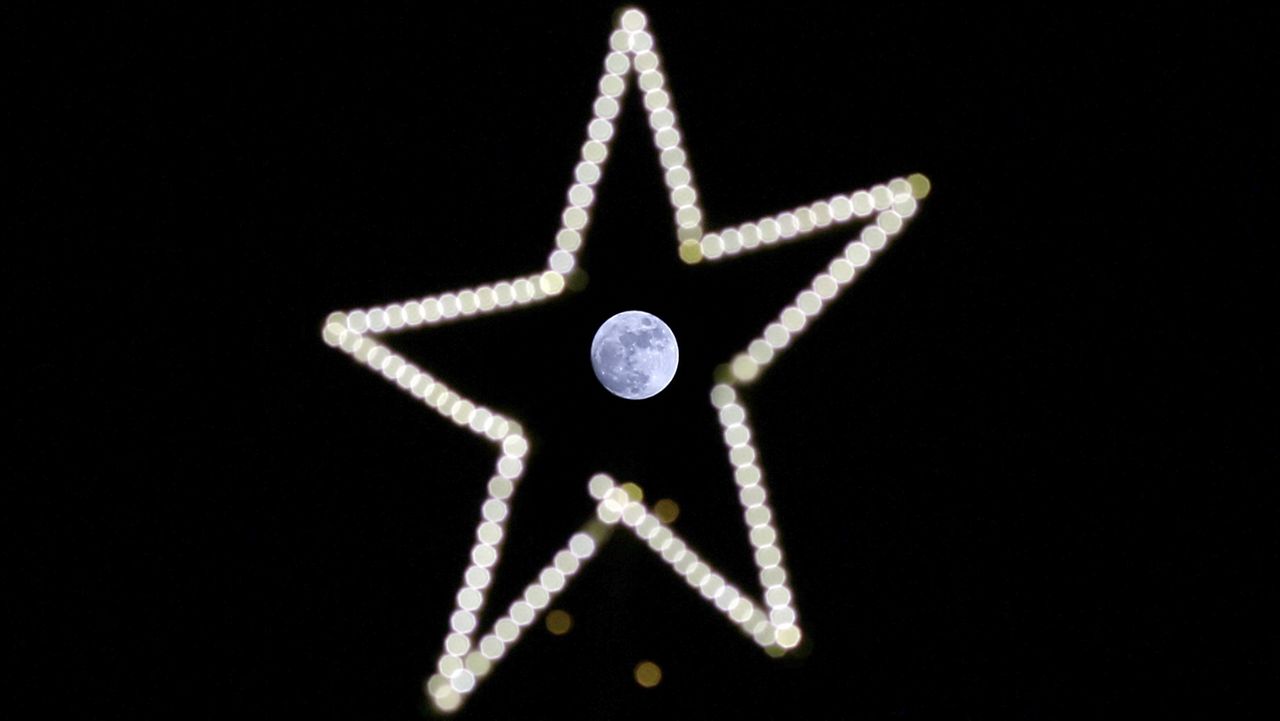The final full moon of the year will appear in the night sky this week. The December full moon, commonly known as the "Cold Moon", appears during the longest periods of darkness just before the Winter Solstice. It is also known as the "Moon Before Yule" and the "Long Night Moon".
The Moon will appear fullest at 4:02 a.m. ET on Dec. 15, but it will be visible on both the night of the 14th and 15th.
The "Cold Moon" will notably be the highest full moon of the year in the Northern Hemisphere. The sun will be at its lowest point of the sky, which means that the moon will be the opposite. That means that you will be able to see the bright "Cold Moon" for a longer period of time in the night sky.
The Geminids, one of the more reliable meteor showers of the year, will be peaking around December 12th and 13th this year. While the shower is best viewed during the night and pre-dawn hours, activity typically begins around 9 or 10 p.m., according to NASA. It is important to note that the timing of the "Cold Moon" will make visibility of the meteor shower lower due to the brightness of the full moon.
There are eight different phases of the moon. What phase follows a full moon?



